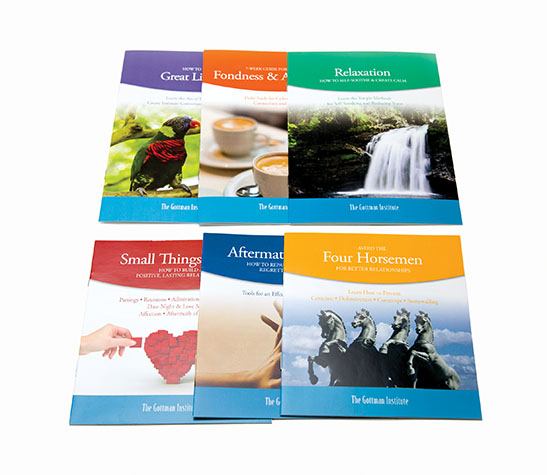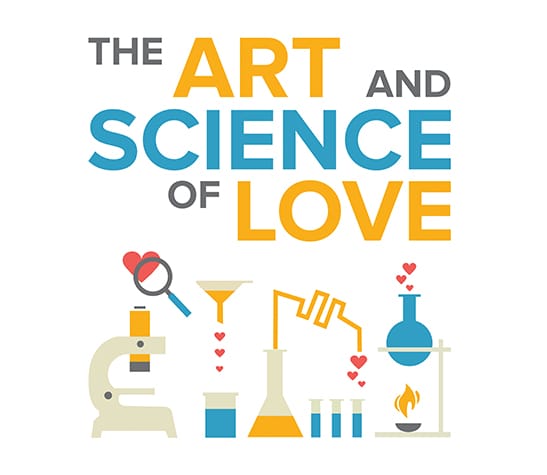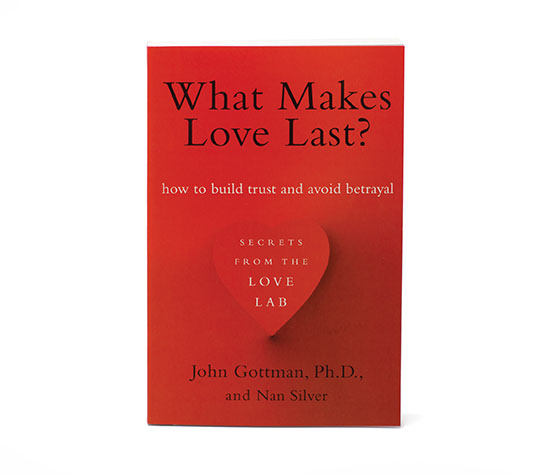One of the most common sources of conflict in marriage is money, how to spend it, and how to save for things that really matter.
It doesn’t make sense when you think about it logically. Money is simple. Keeping a budget is something an 8-year-old can do.
For a marriage to be wealthy, a couple needs to have more money coming in than going out. It’s just addition and subtraction. Debt needs to be eliminated, and money needs to be saved and invested for the things we want. You know, toes in the sand with a drink in our hand.
If you and your partner follow this rule, you’ll have no financial issues for the rest of your lives. But it doesn’t feel that way, does it? It feels like we need a Master’s degree in Finance and Wealth Management.
But do we?
Dr. John Gottman wanted to find out, so he went to a group of 8-year-olds and asked them for money advice. He told them he works with moms and dads who are fighting about money, so they can stop fighting and love each other more. All the kids understood this.
How well do you know your partner?
He told them a story about a couple.
The husband’s story went like this: “I don’t want to save for tomorrow. I want to live for today. I want to spend money enjoying life. Uncle Jack saved up millions of dollars living in a one room condo and he never went out. He never truly enjoyed life. I don’t want that.”
The wife’s story went like this: “My family grew up poor. We never had any money when an emergency came up or if somebody got sick. We never had enough to plan for the future. When my parents got older and couldn’t work as hard, they had nothing. They couldn’t retire. I don’t want to be like my parents.”
One wants to spend now. The other wants to save for later. They are stuck in financial gridlock.
Dr. Gottman looked at the kids and asked, “What should this mom and dad do?”
A hand shot up. “Save some and spend some.” The other kids looked at each other and agreed.
The 8-year-old believed that the couple should work out a compromise with each other. The best option would be to work hard for a while, put some of the extra money in savings, and use the rest of it to enjoy life so they don’t end up like Uncle Jack.
That’s all it takes. Kids are totally logical.
So what’s wrong with us adults? Why do we struggle with money when an 8-year-old knows what’s best?
Money Isn’t About Money
Money, to a degree, defines us. It determines how we dress. How we eat. What social groups we join. Whether we like it or not, money influences what we can and cannot do with our lives. So where does all this start?
Out of all the forces that determine our relationship with money, the most influential is our personal history – the melting pot of our childhood, teenage, and adult experiences that have sculpted and re-sculpted our likes and dislikes about money throughout our lives.
Our unique experiences come together to form what Dr. Gottman calls our Money Map.
We spend our lives swimming in a sea of moments that sculpt our financial dreams and fears. Maybe it was your father’s gambling problem, or your mother’s uptight way of controlling the household finances. Maybe it was your sister’s expensive interest in riding horses. Maybe it was your wealthy uncle who had a nine car garage, leaving you to feel like you couldn’t measure up.
These, along with thousands of other moments, create our individual beliefs about money.
Money Maps, like Love Maps, are often subtle and difficult to read. You may have grown up with an alcoholic mother who spent food money on liquor, making your meals unpredictable, so you made a promise to yourself that high-quality, expensive food was more important than saving for retirement. Or maybe you were picked on by kids in school for the way you dressed, so you spent all of your savings on custom tailored suits and ate Mac and Cheese every night so you wouldn’t get made fun of.
It’s these personal meanings that guide how we deal with money in our marriage. Logic has very little to do with it.
So when your partner complains about the expensive organic groceries you bought at Whole Foods, or the silk tie that costs more than a plane ticket, an argument breaks out, to you it’s not just food or a tie. These privileges represent stability and success. They protect you. They define you.
Money is loaded with power and meaning that can make can discussions heated and hurtful. Arguments about money aren’t about money. They are about our dreams, our fears, and our inadequacies.
What 8-year-olds don’t understand is that the key to managing conflict about money is to not focus on how much something costs. Instead, it’s to go beneath the dollar value to explore what money really means to each person in the relationship.
To move past these arguments, you need to use conflict about finances to understand how your partner came to be that way. Work together with this new understanding of each other to create shared meaning around money that brings you closer, rather than pushes you apart.
Sign up for the Love Notes Newsletter
Get the latest on relationships, parenting, therapy and more from the experts at The Gottman Institute, plus get a FREE download every month!










